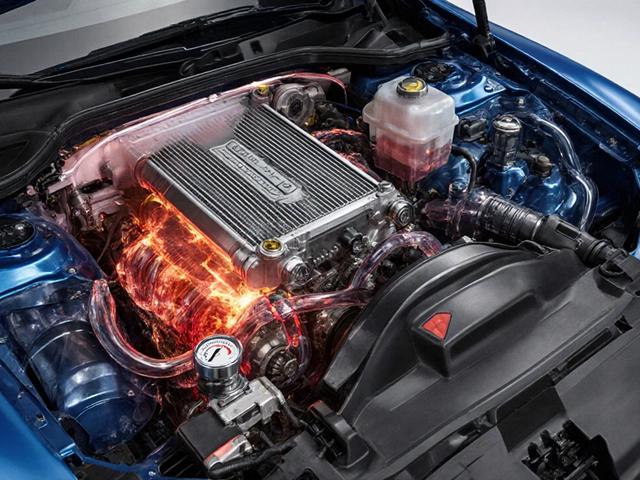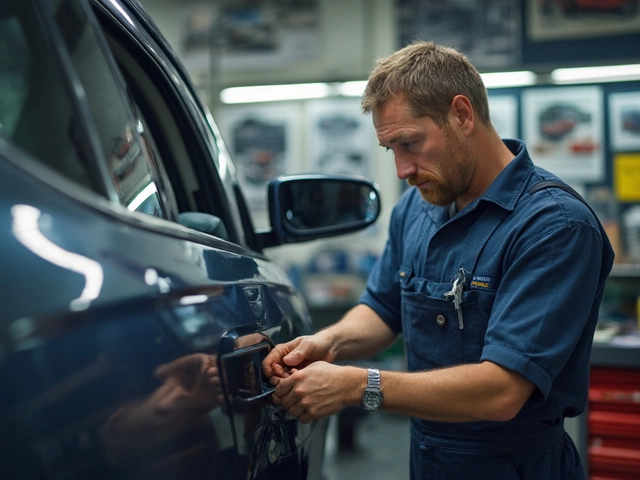Driving Safety: Simple Tips to Stay Safe on the Road
Feeling confident behind the wheel starts with a few easy checks. You don’t need a mechanic’s degree to keep your car safe – just a bit of curiosity and a few minutes of time. Below you’ll find straight‑forward advice that you can use right now, whether you’re heading to work or planning a weekend road trip.
Check Your Tyres and Wheels
Tyres are the only part of your car that actually touches the road, so they matter more than you might think. Look for tread depth of at least 3 mm; anything less reduces grip in rain and increases the chance of a blow‑out. If you see cracks, bulges, or uneven wear, it’s time for a replacement. Don’t forget to check tyre pressure once a month – the right pressure improves fuel efficiency and handling. While you’re at it, give your alloy rims a quick wash and a visual inspection for corrosion; a clean rim helps the tyre sit correctly and reduces vibration.
Brakes, Clutch and Suspension
Good brakes are non‑negotiable. If you hear squealing or feel a spongy pedal, replace the pads before they wear down to the metal. Changing only the rear pads can work for some cars, but many manufacturers recommend swapping both sets at the same time for even braking. Your clutch should feel smooth; a burning smell or slipping means you’re getting close to failure – keep an eye on it and plan a replacement before it leaves you stranded.
The suspension keeps your ride steady and your tyres in contact with the road. Bad shocks or worn springs make the car bounce, lengthen stopping distances, and wear tyres faster. Look for clunking noises when you go over bumps or a noticeable pull to one side. If you spot any of these signs, have a professional check the suspension; fixing it early saves money and keeps you safe.
Windshield wipers are often overlooked, but clear visibility is a safety cornerstone. Make sure both front and rear wipers are working, especially in the UK where rain is common. Removing the rear wiper isn’t illegal, but it can affect your MOT and reduce safety in heavy rain. Replace blades every six months or when they start streaking.
Engine health also plays a role in safety. Faulty spark plugs can cause misfires, rough idling, and loss of power when you need it most. If you notice a drop in acceleration or a ticking noise from the engine, have the plugs inspected. The same goes for the fuel pump – a weak pump can stall the engine unexpectedly. Simple tests, like listening for a humming sound when the key is turned, can flag problems early.
Air filters keep dirt out of the engine and cabin. While premium filters promise extra protection, a standard filter that’s changed regularly does the job for most drivers. Don’t let a clogged filter force the engine to work harder; replace it according to the manufacturer’s schedule or when you notice reduced performance.
Finally, keep an eye on your car’s battery. A weak battery can die on a cold morning, leaving you stuck. Test the voltage with a multimeter or ask a shop to do a quick check. If the battery is more than three years old, consider a replacement to avoid surprise breakdowns.
Staying safe on the road is mostly about staying ahead of problems. A quick visual check, a few simple tests, and a regular service schedule will catch most issues before they become emergencies. Keep this list handy, make the checks part of your routine, and you’ll drive with confidence every day.
 4 August 2025
4 August 2025
Can You Drive With a Bent Suspension? Dangers, Signs, and Real Fixes
Wondering if it's safe to drive with a bent suspension? Learn the dangers, warning signs, and practical tips on what to do if your car’s suspension gets damaged.
 4 May 2025
4 May 2025
Windscreen Wiper Basics: What Every Driver Should Know
Wondering what that stick next to your steering wheel actually does? A windscreen wiper is one of those simple car parts you never really notice—until it fails in the middle of a rainstorm. This article explains exactly what a windscreen wiper does, how it works, and why you should care about its condition. You'll also find some cool facts and easy tips to help your wipers last longer and work better. It's everything you need to know so you’re never caught off guard the next time rain starts pouring down.
 11 December 2024
11 December 2024
Dealing with a Damaged Radiator: What You Need to Know Before Hitting the Road
Driving with a faulty radiator can lead to severe car damage and dangerous situations on the road. This article explains why radiators are vital for vehicle performance, the risks of driving with a compromised radiator, and early signs of radiator problems. Additionally, it offers tips on preventive maintenance and guidance on what to do if faced with radiator issues.
Tags
- car maintenance
- engine oil
- spark plugs
- brake pads
- engine performance
- vehicle maintenance
- spark plug replacement
- windshield wipers
- fuel pump
- suspension parts
- clutch replacement
- clutch kit
- car performance
- oil change
- air filters
- car suspension
- car radiator
- exhaust systems
- engine misfire
- fuel pump failure






0